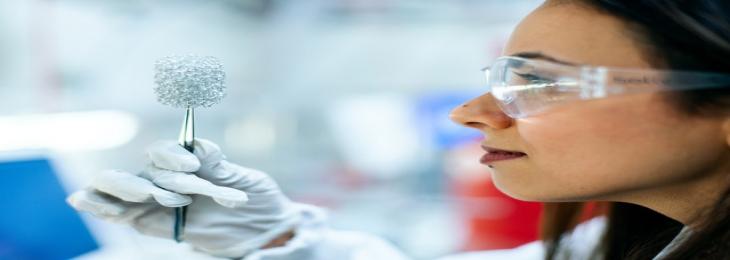Jun, 2021 - By WMR

Scientists hope to develop more sustainable batteries that cause less harm to nature compared to lithium ion ones.
In today's ongoing shift towards renewable and sustainable energy one of the challenges the world is facing is the way of storing it. Current lithium batteries serve their purpose quite well however, the batteries have their own sustainability issues as they are metal laden. Hence, scientists are in the search of a more eco-friendly alternative. Now, a team from A&M University Texas presented an interesting option by demonstrating a battery that is metal-free and can degrade if put in an acidic solution.
With the rising demand for electric vehicles and electronic devices the demand for lithium-ion batteries is also on rise. These rely on not easily sourced heavy metals. Cobalt, for instance, is cursed with issues regarding ethics as it involves mining practices in Africa including child labor, along with polluting water supplies and environmental degradation. Moreover, separation and recovery of the materials is hard when the battery life ends. Dr. Jodie Lutkenhaus, author of the study says, “The rate of recycling lithium-ion batteries right now is in the single digits. There is valuable material in the lithium-ion battery, but it's very difficult and energy intensive to recover.”
The team at Texas A&M University instead used chains of electrochemically active amino acids, known as redox active polypeptides, for building the two electrodes of the battery, which transport the energy back and forth when device is charged and discharged. A couple of important boxes was checked by the organic batteries while testing, the first being the electrodes remained stable during operation and performed as active materials. Afterwards, when the materials were subjected to acidic environments, they were able to degrade, as a result, leaving amino acids and other benign degradation compounds. Therefore, the remainders could either be re-used or left for harmlessly dissolving into the environment. Scientists are now working to make further improvements in the design.

We will be happy to help you find what you need. Please call us or write to us: